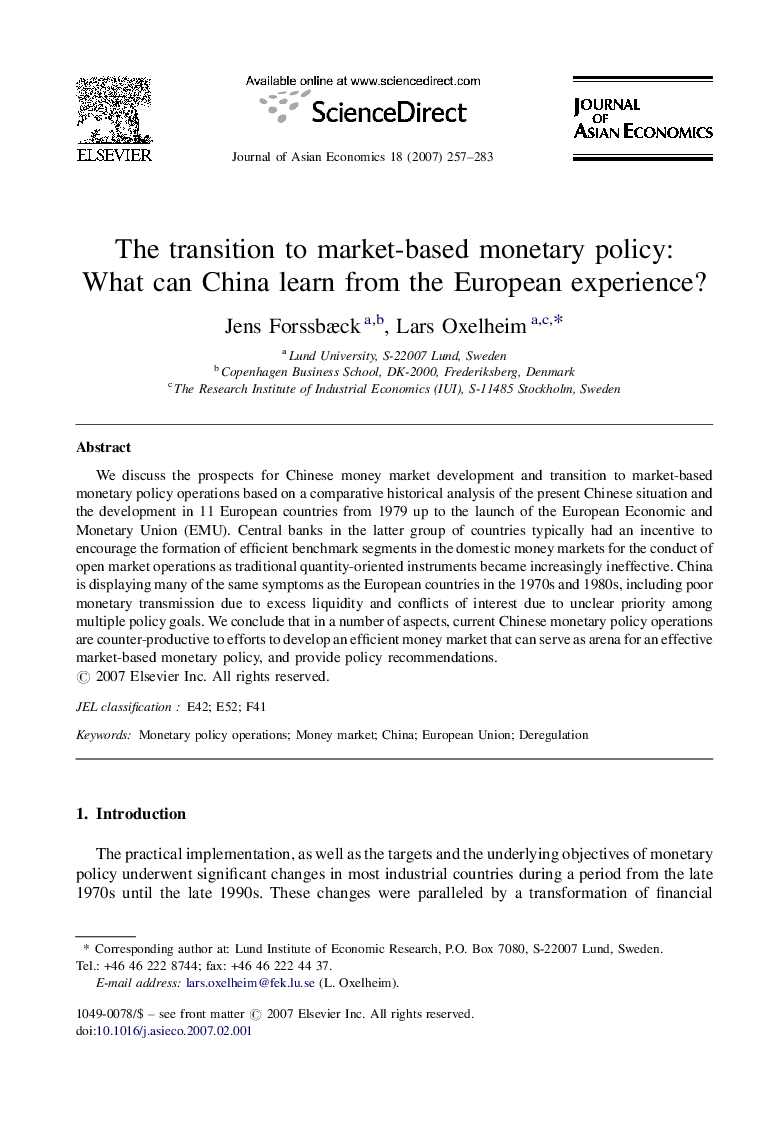| Article ID | Journal | Published Year | Pages | File Type |
|---|---|---|---|---|
| 5087824 | Journal of Asian Economics | 2007 | 27 Pages |
Abstract
We discuss the prospects for Chinese money market development and transition to market-based monetary policy operations based on a comparative historical analysis of the present Chinese situation and the development in 11 European countries from 1979 up to the launch of the European Economic and Monetary Union (EMU). Central banks in the latter group of countries typically had an incentive to encourage the formation of efficient benchmark segments in the domestic money markets for the conduct of open market operations as traditional quantity-oriented instruments became increasingly ineffective. China is displaying many of the same symptoms as the European countries in the 1970s and 1980s, including poor monetary transmission due to excess liquidity and conflicts of interest due to unclear priority among multiple policy goals. We conclude that in a number of aspects, current Chinese monetary policy operations are counter-productive to efforts to develop an efficient money market that can serve as arena for an effective market-based monetary policy, and provide policy recommendations.
Related Topics
Social Sciences and Humanities
Economics, Econometrics and Finance
Economics and Econometrics
Authors
Jens Forssbæck, Lars Oxelheim,
